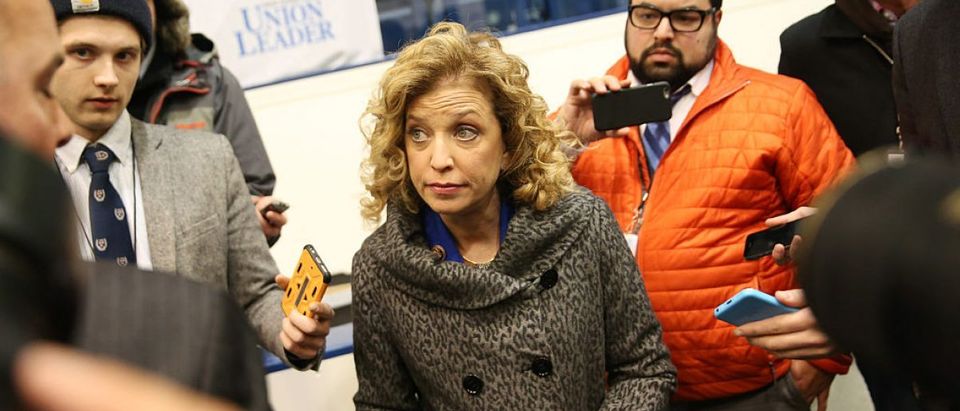The Democratic National Committee (DNC) had a great week at its convention in Philadelphia, where Hillary Clinton made history and accepted the party’s nomination for President of the United States. But some Democrats got a taste of what it feels like to be Donald Trump.
Democratic Party bias in favor of Clinton — now proven, compliments of Wikileaks and possibly the Kremlin — stoked the flames of Bernie Sanders enthusiasts and validated one of Trump’s long-standing claims: “The system, folks, is rigged.”
Last month it was revealed that the DNC and its now ex-chairperson, Florida Congresswoman Debbie Wasserman-Schultz, pushed for Secretary Clinton’s candidacy throughout the primary season while suppressing that of Senator Sanders, despite party rules obligating leadership to remain neutral. Such a grotesque illustration of partiality in the top ranks is arguably an existential problem for a party that prides itself on qualities like “fair” — a word that appears more than 40 times in the 2016 Democratic Party Platform — and “equal” (27 times).
A close look at the nearly 20,000 emails released by Wikileaks reflects that Senator Elizabeth Warren’s comments in Philadelphia were out of touch. “People get it: the system is rigged. But there is a huge difference between the people fighting for a level playing field, and the people keeping the system rigged.”
Warren’s words, albeit unintentionally, articulated the conundrum in which the DNC finds itself and that which Wikileaks exposed: Who is “fighting for a level playing field?” Certainly it is not Wasserman-Schultz or the DNC staffers that prejudiced their party’s primary in favor of a single candidate.
Biased and undemocratic processes seem to be built-in to the DNC’s structure. In February, when asked why the party uses superdelegates to select its presidential candidate — a process whereby the top brass have a greater say in candidate selection than the American voter — Wasserman-Schultz responded, “Unpledged delegates exist, really, to make sure that party leaders and elected officials don’t have to be in a position where they are running against grassroots activists.”
Bernie Sanders was that grassroots activist.
Wasserman-Schultz is no stranger to such types as Sanders. She learned a hard lesson in 2008 and was determined to not let history repeat itself in 2016. In the 2008 election cycle, when she served as then-Senator Hillary Clinton’s national campaign co-chair, it was the “grassroots activist” Senator Barack Obama who undermined her candidate’s prospects. Wasserman-Schultz wasn’t having any of that again.
Sanders may have, in fact, waited too long to join the real world. Had he dropped out of the Democratic primary race sooner and helped the party consolidate support behind Clinton, the Wikileaks cache may not have created the vicarious internal divisions that we saw play out in the City of Brotherly Love.
But Bernie did wait. And while his supporters are not necessarily shifting to Trump’s side, “the political revolution we have begun to transform America” — to use Sanders’ words — melds, even if unintentionally and undesirably, with the anti-establishment gripes articulated early on by Trump.
Running out of friends for his seemingly endless incendiary remarks, Trump must now work to convince general election voters that his divisive rhetoric, lack of policy knowledge, and disrespect of military families will be an asset to the Oval Office. Clinton’s campaign, on the other hand, already bogged down with trust issues, faces the task of convincing voters to ignore (once again) emails, huddle together, and declare “I’m With Her” regardless of how she ascended to the party’s top.
With this year’s presidential race asking voters to choose between two historically unpopular candidates, voting for a third party option like Jill Stein or the Libertarian Party’s Gary Johnson may be tempting to independents, zealous Sanders supporters, even staunchly anti-Trump Republicans. However, memories of Ralph Nader — the Green Party candidate in 2000, who managed to pull votes away from Al Gore and, in turn, make George W. Bush the 43rd president – still linger. Casting a ballot for a third party is an exercise in individuality and a citizen’s rights. But it may also be an exercise in futility, as America is unlikely to wake up to a president-elect Stein or Johnson on November 9.
The realistic, ethical, and completely doable solution is to allow more room for more candidates within the two party system. Starting with 17 candidates that took part in a robust debate schedule, the GOP allowed for that this election cycle. The DNC did not. It could have, and must, do better.
Trump has argued throughout his campaign that “the system,” however one may define it, is rigged. Senators Sanders and Warren have agreed with that point. The behavior of Wasserman-Schultz and some within the DNC have validated it. How this all will affect voter turnout, and voting, in November is any pollsters’ guess. Leadership in both parties would be wise, regardless of the presidential election outcome, to adequately address what is clearly a bipartisan concern regarding political party machinery.












